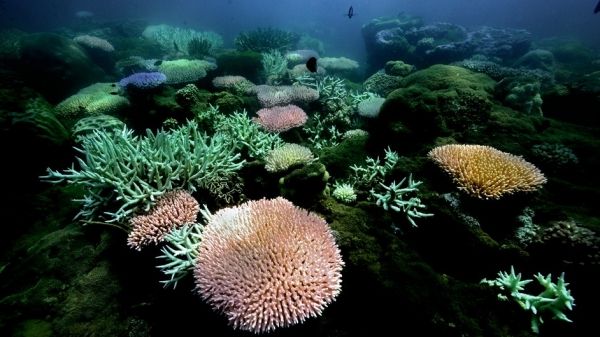Coral reefs are dying at an alarming rate as water temperatures rise worldwide as a result of global warming, pollution and human activities. In the last three decades, half of Australia’s Great Barrier Reef has lost its coral cover.
A new study from Columbia University provides more evidence that genetic-sequencing can reveal evolutionary differences in reef-building corals that one day could help scientists identify which strains could adapt to warmer seas.
The findings, published in Science July 16, provide a window into the genetic processes that allow some corals to resist dramatic climate shifts that could complement or improve current preservation efforts.
Continue reading at Columbia University
Image via Columbia University


